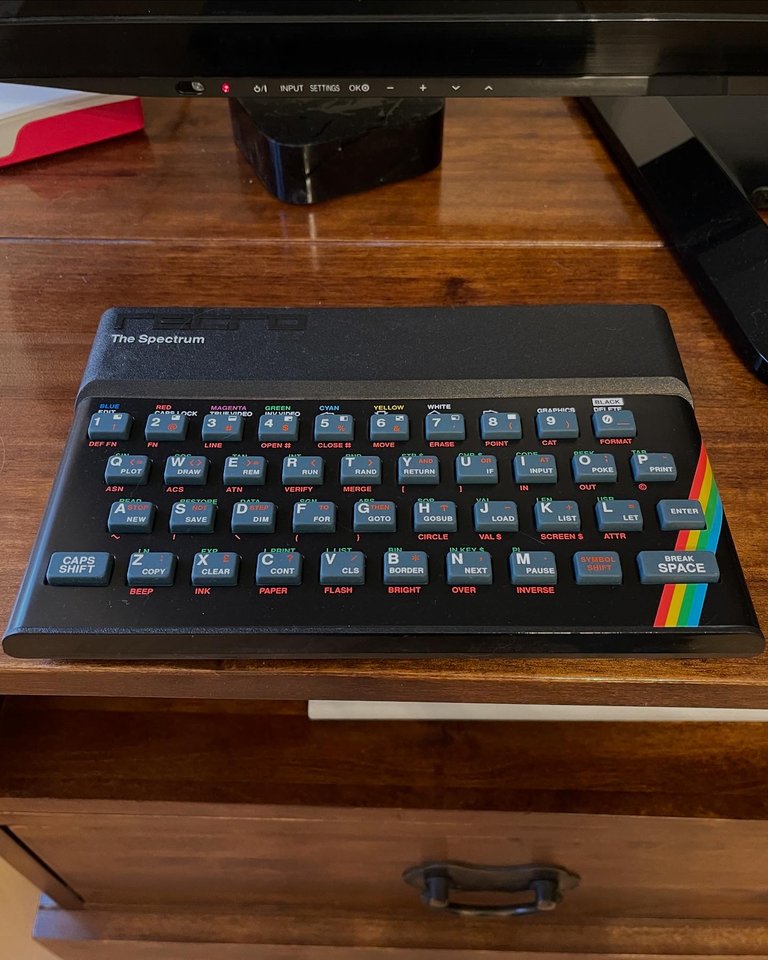
I finally got a minute to fire up my new 'The Spectrum' that my wife bought me as a gift for Christmas.
In the USA the original machine that this recreation is based upon barely even got a mention in passing by games press, let alone actual gamers.
Outside of the USA, though, was a much different story.
The ZX Spectrum (UK: /zɛd ɛks/) is an 8-bit home computer developed and marketed by Sinclair Research. Considered one of the most influential computers ever made, it is also one of the best-selling British computers ever, with over five million units sold. It was released in the United Kingdom on 23 April 1982, and around the world in the following years, most notably in Europe, the United States, and Eastern Bloc countries.
The machine was designed by English entrepreneur and inventor Sir Clive Sinclair and his small team in Cambridge, and was manufactured in Dundee, Scotland by Timex Corporation.[5] It was made to be small, simple, and most importantly inexpensive, with as few components as possible. The addendum "Spectrum" was chosen to highlight the machine's colour display, which differed from the black-and-white display of its predecessor, the ZX81.
It's kind of like Robbie Williams, where people in North America don't know who he is or why he is famous in his home country. And like Robbie Williams, those who are familiar are also well aware of the flaws.
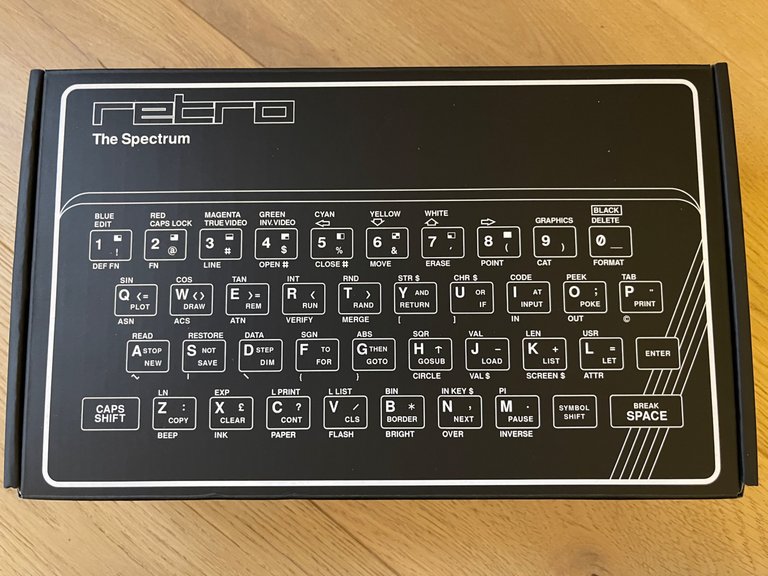
One of the flaws on the original was the weird rubber keyboard that, as with many computers of the day, put multiple functions on each key.
To be fair to Sinclair, this machine was built to a budget, aiming for the ordinary British family, unlike the BBC Micro where there was a practically guaranteed market.
Programming the Speccy involved using the key combinations rather than typing out BASIC commands. Something I found really horrible. It was only when the 128 came out that we had the option to type out commands. People did get very quick and efficient at using this programming method, however, plus you were directly tokenizing the BASIC as you typed P for PRINT.
The new recreated version also recreates this keyboard authentically, plus has USB ports for an external joypad or keyboard.
It runs off 5v 1a USB so I powered it off the TV, and handily it uses full size HDMI so I just switched out the Apple TV.
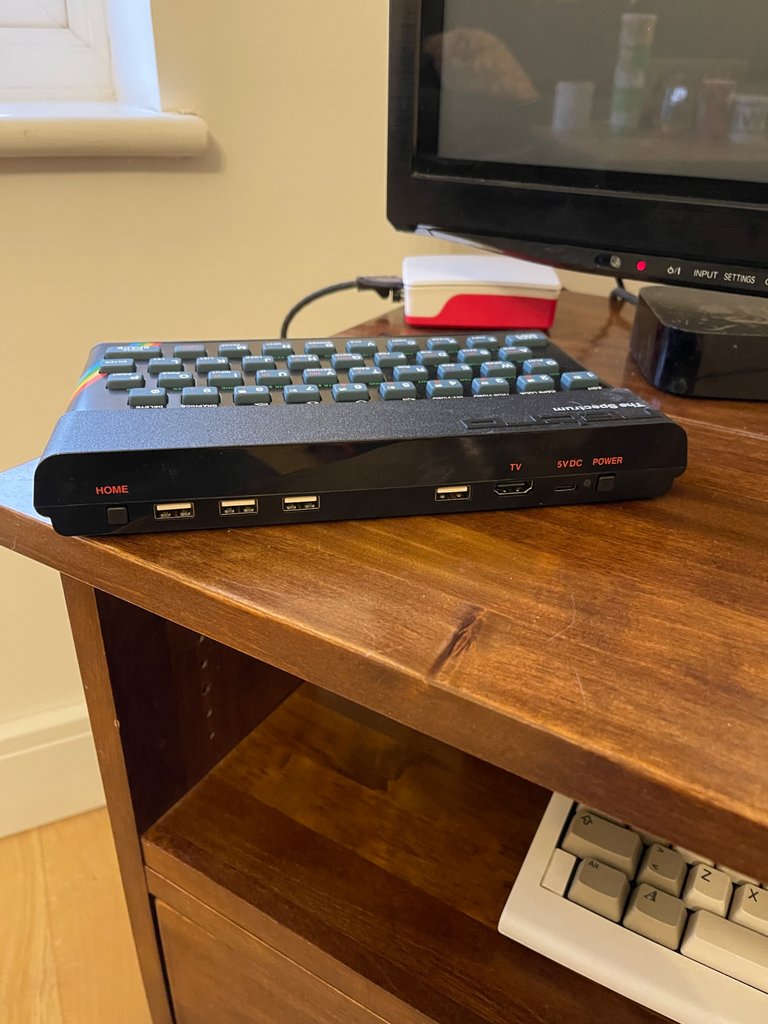
The included games are not a bad selection but the real fun happens when you load your favourites.
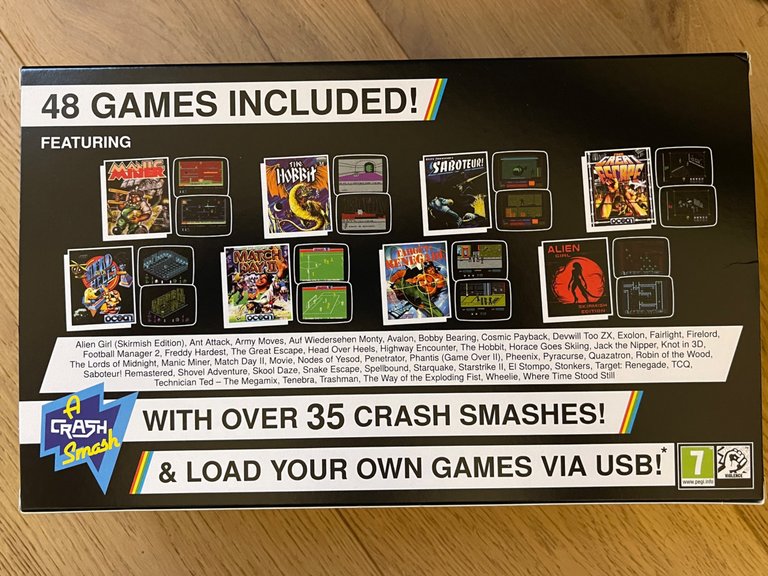
As with the C64/Vic 20, A500, and the Atari, you select games from a carousel. You also have the opportunity to rewind and save games, which is super helpful considering games of the era were renowned for being difficult and unforgiving.
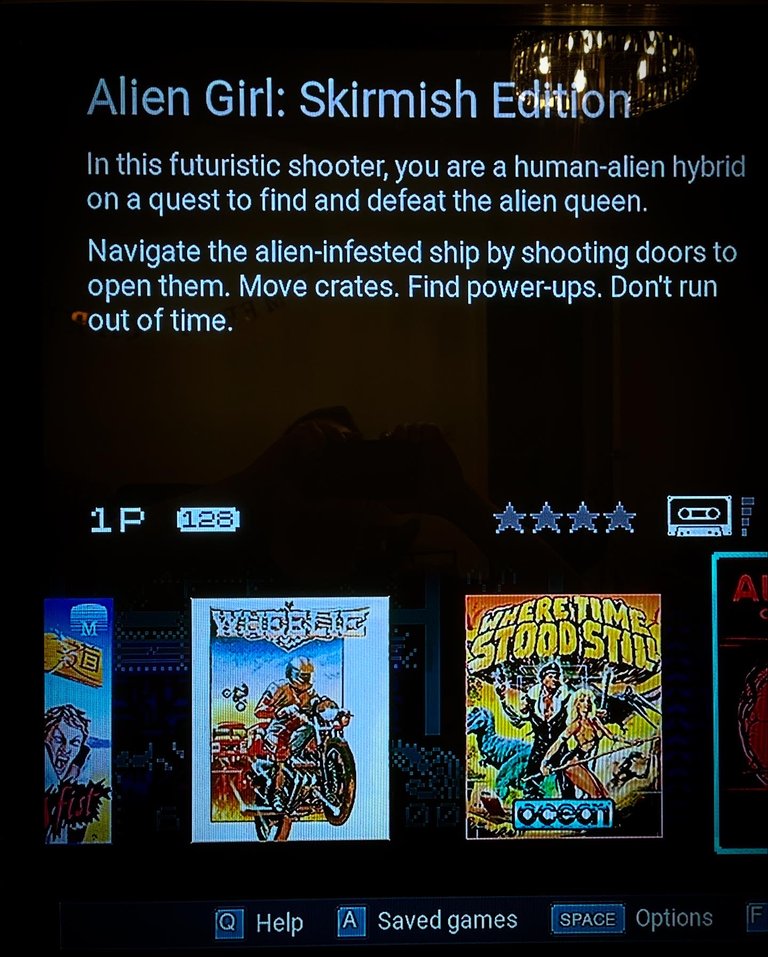
Another downside of the Spectrum was the inability to set the colour of graphics on the pixel level, opting instead to only be able to set the colour on character sized blocks. This didn't stop some games having vibrantly coloured graphics, but a lot of games did forgo colour in favor of monochrome clarity.
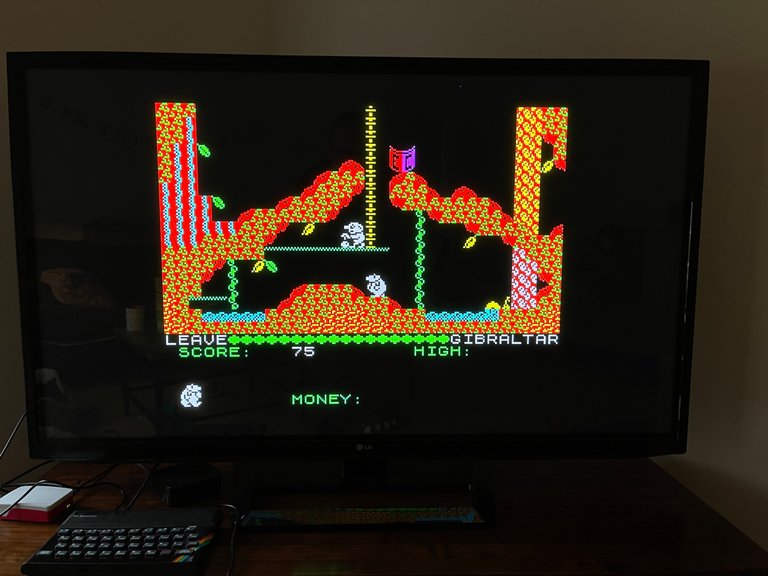
Apparently, this little retro machine sold well in the lead up to and over Christmas. My wife had to call around to find one for me in stock otherwise delivery would have been the new year. In certain countries the sales beat sales of xbox ...
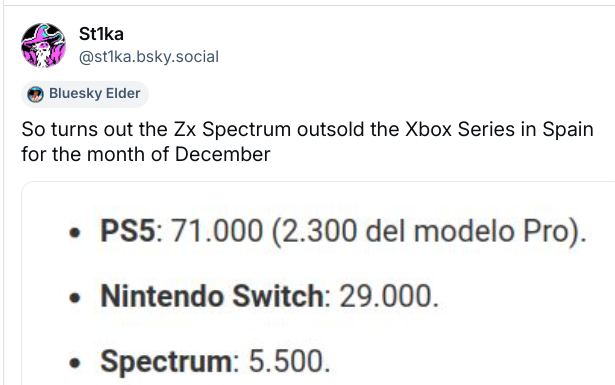
Some folks are saying it is unsurprising seeing as in the UK and parts of Europe the speccy was one of the best-selling computers, or even the best-selling, right throughout the 1980s, but as mentioned earlier it was NOT because it was the best!
We look back with affection and nostalgia, but given a real choice I imagine most kids would have gone with a better specced (sorry) machine.
That said, there was an amazing selection of software, pretty much everyone knew someone else who had one, and it inspired many people to become "bedroom coders" and that built the UK IT industry more than anything else - including the government and BBC efforts.

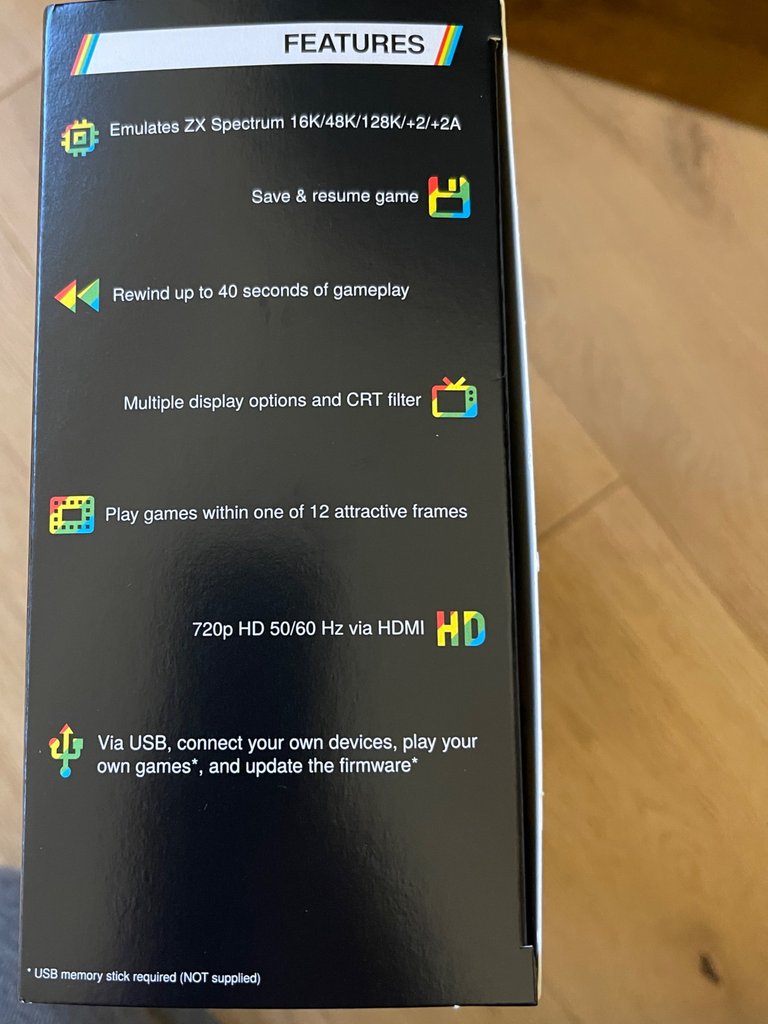
I learned computing in Year 7 at school on a BBC Micro and bought a TI99/4A (the first 16 bit home computer) in 1984, but the Sinclair was in the running for my money.
A good friend of mine had a Spectrum whilst I had a Beeb. I had to admit he had some better games even if the graphics were limited and I would go to his place to play them. I got rid of my old computers and regret it a bit, but would I really play those old games? I don't even play any new ones. I know there are some new versions of other old computers for the nostalgia market.
I don't play games much I'm mainly into programming them, plus with original hardware getting them working again, but I do like to refresh my memory of the old games